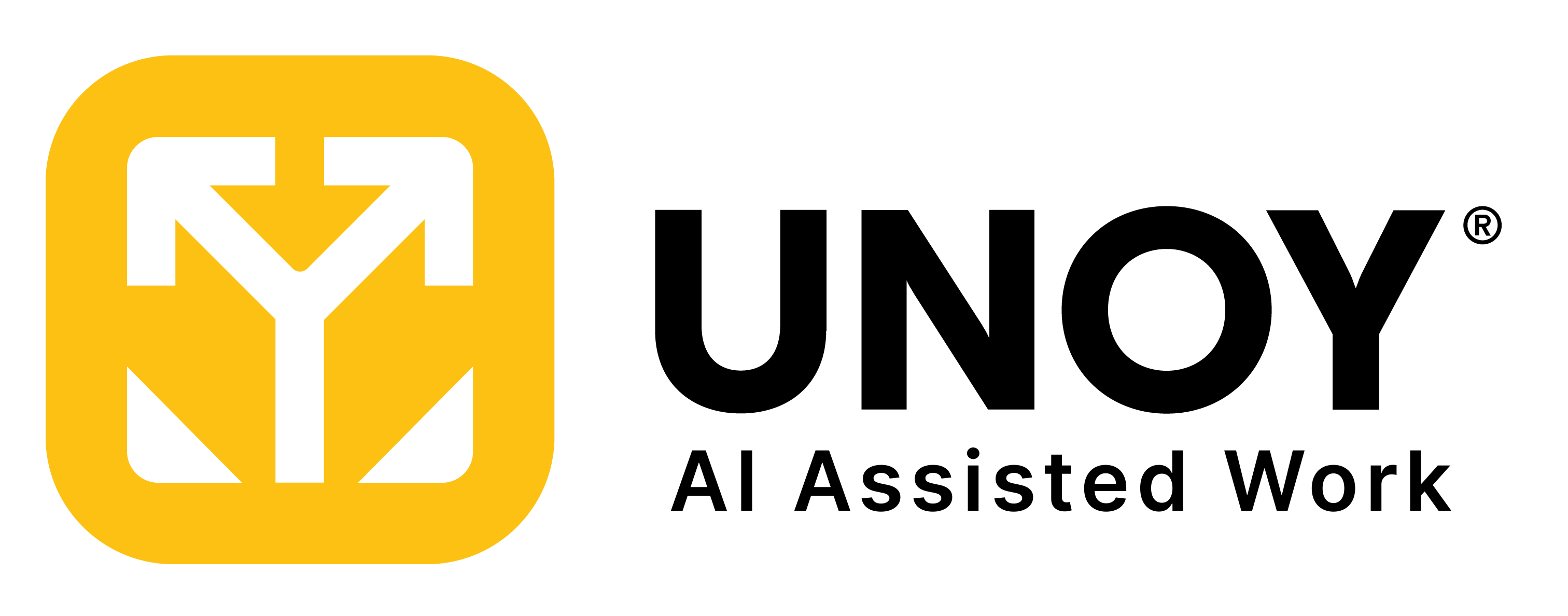Intelligente Dokumentenprüfung: Wie AI Anwälte unterstützt
Was ist eine intelligente Dokumentenprüfung?
Intelligente Dokumentenprüfung bezieht sich auf den Einsatz von KI-gestützten Tools zur Analyse, Extraktion und Organisation von Informationen aus juristischen Dokumenten. Im Gegensatz zu herkömmlichen Methoden, die ausschließlich auf menschlicher Arbeit beruhen, nutzen diese Systeme fortschrittliche Algorithmen, um wichtige Klauseln zu identifizieren, Unstimmigkeiten zu erkennen und in einem Bruchteil der Zeit verwertbare Erkenntnisse zu gewinnen.
So sind beispielsweise Tools wie Luminance und Kira Systems speziell für die Rechtsbranche entwickelt worden. Sie bieten Anwälten die Möglichkeit, Verträge schnell zu bewerten, Due-Diligence-Prozesse zu rationalisieren und die Einhaltung von Vorschriften wie GDPR und CCPA zu gewährleisten.
Wie funktioniert AI bei der Dokumentenprüfung?
KI-Systeme analysieren Text mithilfe einer Kombination aus NLP und ML. NLP ermöglicht es dem Werkzeug, den Kontext und die Semantik der Sprache zu verstehen, während ML es ihm ermöglicht, aus Mustern, die in historischen Daten identifiziert wurden, zu lernen und diese zu verbessern. Diese Werkzeuge können:
- Extrahieren: Ziehen Sie bestimmte Klauseln, Bedingungen oder Datenpunkte aus Verträgen oder Rechtstexten.
- Klassifizieren: Kategorisieren Sie Dokumente nach Typ (z. B. NDAs, Arbeitsverträge), um die Organisation zu erleichtern.
- Vergleichen: Heben Sie Unterschiede zwischen Dokumentversionen hervor, um Änderungen oder potenzielle Risiken zu erkennen.
- Flagge: Kennzeichnen Sie nicht standardisierte Sprache oder riskante Begriffe, die weitere Aufmerksamkeit erfordern.
Diese Fähigkeiten machen KI-Tools unverzichtbar für Aufgaben wie Due-Diligence-Prüfungen, Compliance-Audits und Unterstützung bei Rechtsstreitigkeiten, bei denen Geschwindigkeit und Genauigkeit entscheidend sind.
Die wichtigsten Vorteile von AI bei der Dokumentenprüfung
1. Zeiteffizienz
Die herkömmliche Prüfung von Dokumenten ist zeitaufwändig und erfordert oft, dass die Rechtsteams Hunderte oder Tausende von Seiten manuell durchforsten. KI-Tools verkürzen diese Zeit drastisch, indem sie sich wiederholende Aufgaben automatisieren und Ergebnisse innerhalb von Minuten liefern. Bei Fusionen und Übernahmen zum Beispiel können KI-Systeme wichtige Details aus Verträgen über ein ganzes Portfolio hinweg in einem Bruchteil der Zeit verarbeiten und zusammenfassen, die ein menschliches Team dafür benötigen würde.
2. Erhöhte Genauigkeit
Menschen sind anfällig für Ermüdung und Übersehen, vor allem wenn es um dichte, sich wiederholende Texte geht. KI-Systeme hingegen arbeiten mit gleichbleibender Präzision und erkennen potenzielle Probleme wie fehlende Klauseln oder die Nichteinhaltung von Vorschriften. Dadurch wird nicht nur die Wahrscheinlichkeit kostspieliger Fehler verringert, sondern auch ein höherer Standard der Arbeit gewährleistet.
3. Kosteneinsparungen
Durch die Automatisierung arbeitsintensiver Aufgaben ermöglicht KI den Kanzleien eine effizientere Ressourcenzuteilung. Das bedeutet weniger abrechenbare Stunden für Routineprüfungen und mehr Zeit für strategische Beratungsleistungen, was letztlich die Kosten für die Kunden senkt.
4. Verbesserte Zusammenarbeit
KI-Tools lassen sich nahtlos in Praxisverwaltungssysteme und Dokumentenspeicher integrieren, so dass die Teams effektiver zusammenarbeiten können. Funktionen wie gemeinsame Anmerkungen, automatische Zusammenfassungen und die Verfolgung von Arbeitsabläufen sorgen dafür, dass alle Beteiligten während des gesamten Überprüfungsprozesses aufeinander abgestimmt bleiben.
Anwendungen von AI bei der Überprüfung juristischer Dokumente
Sorgfaltspflicht
Bei Unternehmenstransaktionen müssen Anwälte große Mengen von Dokumenten prüfen, um Risiken und Verpflichtungen zu bewerten. KI-Tools beschleunigen diesen Prozess, indem sie relevante Klauseln extrahieren, Anomalien markieren und detaillierte Berichte erstellen. Eversheds Sutherland hat beispielsweise KI eingesetzt, um die Due-Diligence-Prüfung bei hochkarätigen Transaktionen zu optimieren und die Zeit bis zum Abschluss um über 50 % zu verkürzen.
Compliance-Prüfungen
Vorschriften wie GDPR und CCPA verlangen von Unternehmen, dass sie sicherstellen, dass ihre Verträge und Richtlinien strengen Datenschutzstandards entsprechen. KI-Tools vereinfachen die Einhaltung der Vorschriften, indem sie automatisch relevante Klauseln identifizieren, Verstöße markieren und Überarbeitungen vorschlagen. Erfahren Sie mehr über Compliance-Tools bei Unoy's Legal Compliance AI.
Unterstützung bei Rechtsstreitigkeiten
KI-Tools helfen bei der eDiscovery, indem sie Fallakten, E-Mails und Beweise auf Muster oder Unstimmigkeiten hin analysieren. Sie können auch privilegierte Informationen identifizieren und sicherstellen, dass sensible Materialien ordnungsgemäß behandelt werden. Erkunden Sie die Tools für Rechtsstreitigkeiten bei Unoy's Litigation AI Tools.

Herausforderungen und ethische Erwägungen
Trotz ihrer Vorteile bringt die KI bei der Überprüfung von Dokumenten auch Herausforderungen mit sich. Die Gewährleistung des Datenschutzes und der Datensicherheit ist von größter Bedeutung, insbesondere beim Umgang mit sensiblen Kundendaten. Unternehmen müssen Tools mit robuster Verschlüsselung auswählen und sich an Standards wie die des National Institute of Standards and Technology (NIST) halten.
Ein weiteres Problem sind algorithmische Verzerrungen. Wenn ein KI-Tool auf einem begrenzten Datensatz trainiert wurde, können seine Empfehlungen Verzerrungen enthalten, die sich negativ auf die Entscheidungsfindung auswirken könnten. Um dies abzumildern, müssen Entwickler und Unternehmen auf vielfältige und repräsentative Trainingsdaten setzen.
Die Zukunft der KI in der juristischen Praxis
Mit der Weiterentwicklung der KI-Technologie werden sich ihre Fähigkeiten bei der Überprüfung von Dokumenten weiter verbessern. Zukünftige Fortschritte könnten sein:
- Proaktives Risikomanagement: KI-Systeme, die potenzielle Risiken vorhersagen und Präventivmaßnahmen vorschlagen.
- Größere Anpassungsfähigkeit: Maßgeschneiderte Lösungen, die sich an kanzleispezifische Arbeitsabläufe und rechtliche Spezialisierungen anpassen.
- Integration mit IoT: Nahtlose Konnektivität mit anderen intelligenten Systemen in Kanzleien.
Diese Innovationen werden es Anwälten ermöglichen, effizientere, präzisere und aufschlussreichere Rechtsdienstleistungen zu erbringen.
Fazit
KI revolutioniert die Art und Weise, wie Anwälte an die Prüfung von Dokumenten herangehen. Durch die Automatisierung sich wiederholender Aufgaben, die Verbesserung der Genauigkeit und die Senkung der Kosten können sich Juristen auf die strategische Arbeit konzentrieren und ihren Kunden einen größeren Mehrwert bieten. Kanzleien, die KI-Tools einsetzen, verbessern nicht nur ihre Wettbewerbsfähigkeit, sondern positionieren sich auch als Marktführer in der sich schnell entwickelnden Rechtslandschaft.
Sind Sie bereit, KI in Ihre Rechtspraxis zu integrieren? Erfahren Sie mehr über die Lösungen von Kira Systems und Luminance oder nutzen Sie die Ressourcen des Legal AI Hub von Unoy.







